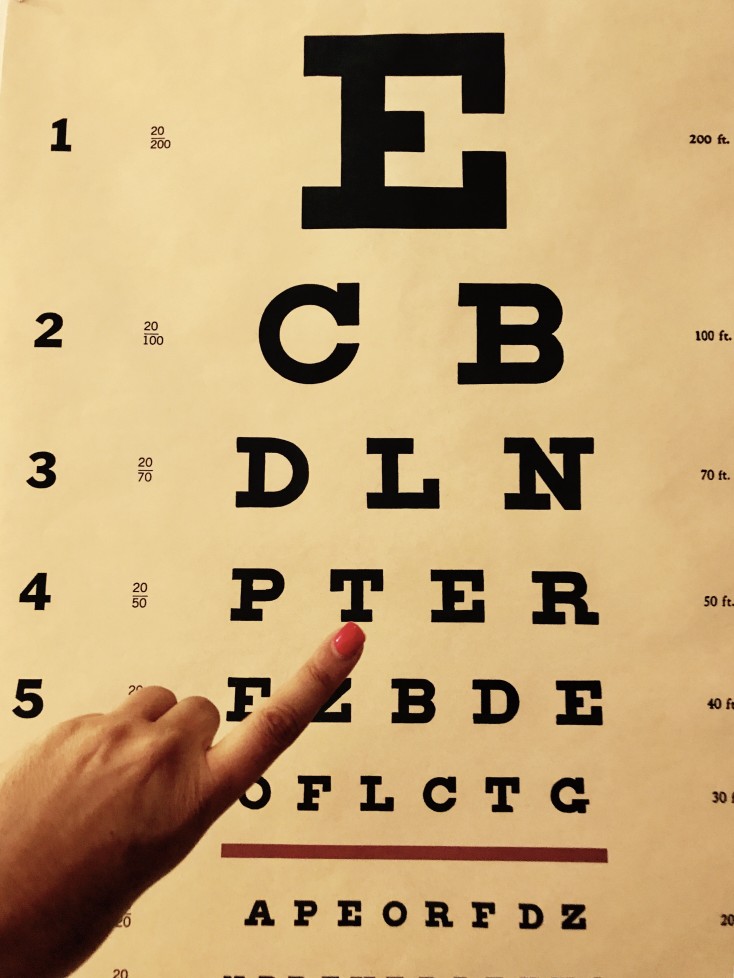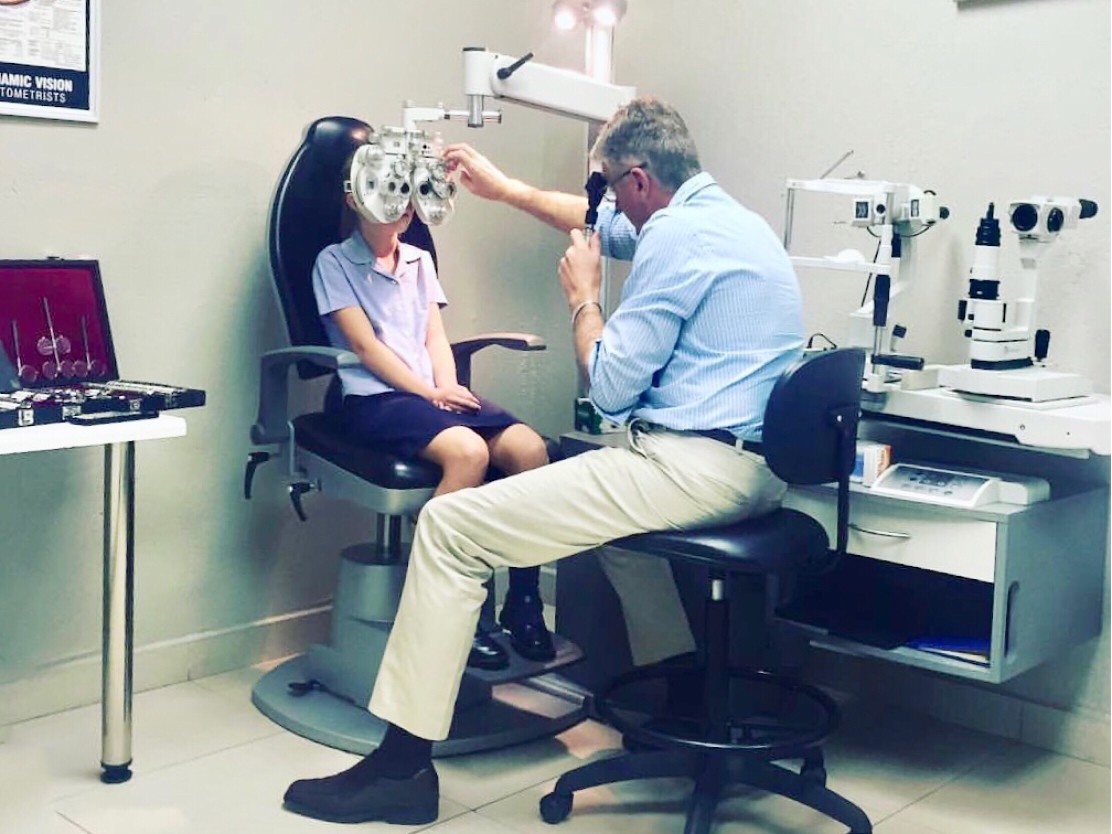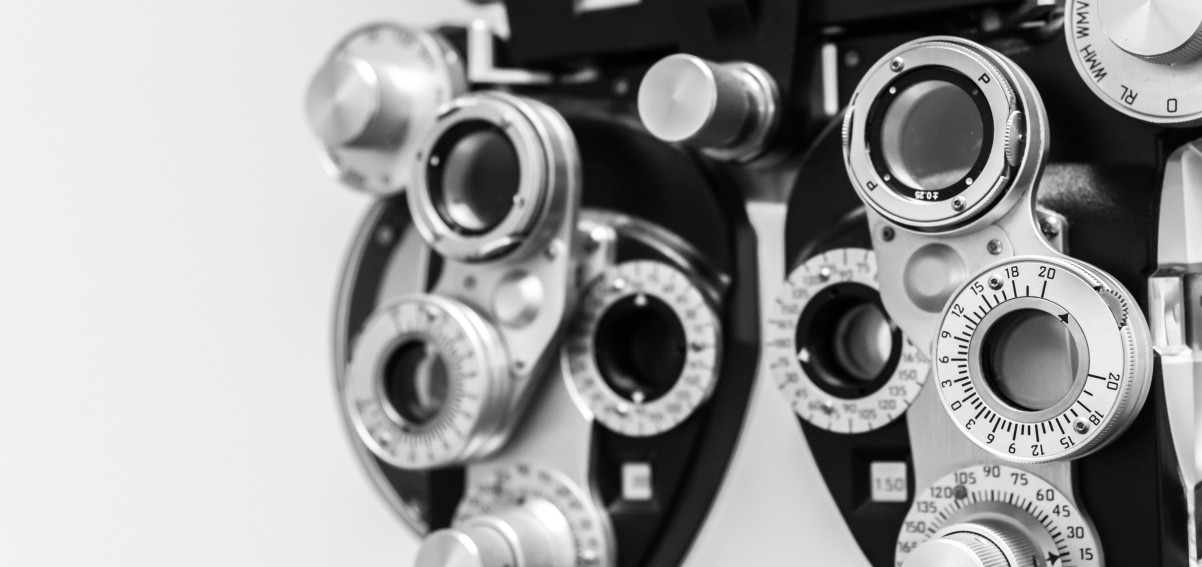Your vision is precious. The ability to see clearly is critical to driving, working, and caring for your family. Whether you have always worn glasses, or you think it is time to start, figuring out which vision specialist to see can be a challenge. Optometrists and Ophthalmologists have different training and different levels of expertise, so how do you know which one to choose? Read on for helpful guidelines on choosing the best vision specialist for your situation.
When Should I See an Optometrist?
Your Optometrist is like a primary care doctor. However, these specialists are exclusively focused on the health of your eyes. They are the first line of defense when it comes to vision care.
Optometrists are the right choice for a comprehensive eye exam. They have dedicated tools to perform important tests. For example, they measure how well your visual system manages refraction by examining how light bends when it passes through the lens of your eye. Refraction errors are a common cause of blurred vision.
Specialized testing also allows Optometrists to look for problems with the many vessels and tissues that support your visual systems. For example, they examine your eyes for muscle weakness, retinal health, and signs of glaucoma.
Most importantly, Optometrists know how to identify refractive conditions affecting your eyes. Examples include nearsightedness, farsightedness, and astigmatism. They prescribe corrective lenses, dispense medication, and recommend a comprehensive treatment plan to help you see properly.
Do Optometrists Have a Medical Degree?
Optometrists have the initials OD in their title, which stands for Doctor of Optometry. They earn this designation after completing four years of post-graduate doctoral education.

When Should I See an Ophthalmologist?
Even the best primary care doctors can't do everything. That is also true for Optometrists. Some cases require the expertise of an advanced vision doctor. If you have a more serious disorder or disease affecting your ocular system, your Optometrist may refer you to an Ophthalmologist. While Ophthalmologists can perform all the same services as an Optometrist, they are specialized to handle more complicated issues, including eye conditions that may require surgery.
Your visit to an Ophthalmologist starts with a complete eye exam. Often, Ophthalmologists also perform tests to better understand your condition. After the exam and testing, Ophthalmologists provide a diagnosis and recommendations for treatment.
If you need eye surgery, an Ophthalmologist performs the procedure. In some cases, uncommon or particularly severe eye disease requires specialty medications. Generally, Ophthalmologists manage these situations as well. However, depending on your condition, your Ophthalmologist may only perform the surgery or prescribe your medication. Afterwards, you return to your Optometrist for follow-up care.
Did My Ophthalmologist Go to Medical School?
Ophthalmologists have licenses like other physicians. They have the initials MD or DO in their title, which shows they have completed four years of medical school, residency, and internship. They have also finished four or five years of post-graduate training in ophthalmology.
Ophthalmologists (as well as Optometrists) must take part in continuing education to keep their licenses current. This ensures they are up-to-date on the latest medical advances.
Many Ophthalmologists specialize in specific types of patients. They might also specialize in a certain eye condition. For example, some focus on glaucoma, geriatric ophthalmology, or pediatric ophthalmology. Keep this in mind when choosing the right Ophthalmologist for your needs.
Is There Always an Optometrist on Staff Where I Buy My Glasses and Contacts?
The store where you buy glasses may or may not have an Optometrist on staff, so it’s best to double check. In general, be sure to do some research before you visit any optical store as quality, service, and pricing varies widely.
How Do I Find an Optometrist?
There are many ways to find a qualified Optometrist. You can ask friends and family for referrals, or your primary care physician can help. The American Optometric Association (AOA) has a comprehensive database of member Optometrists. Simply put in your zip code to find professionals in your area.

Is It Cheaper to Buy Glasses Online?
The internet is full of advertisements for discount glasses and contacts, and companies like Warby Parker have risen to prominence. The truth is, you can probably buy a great product for less than the cost at your local optical store. However, keep in mind that when it comes to corrective lenses, having an optical professional involved with ensuring the accuracy of critical measurements (e.g. pupillary distance, ocular center) is invaluable. When these measurements are not taken with a high degree of accuracy, you can end up with blurred vision, headaches, eye strain and/or nausea from your new lenses.
.jpg)
What Questions Should I Ask My Provider Before Making an Appointment?
Use the same techniques for choosing an Optometrist or Ophthalmologist that you use when choosing other service providers. Make sure they have the education, qualifications, and experience required to give you high-quality care. It is also important that the practice fits your needs when it comes to costs and scheduling.
These are some of the questions to ask before you make an appointment:
- How long do I have to wait for an appointment?
- Is the office located somewhere I can get to easily?
- Are appointments available that fit my schedule?
- Do you accept my insurance?
- What will my out-of-pocket expense be?
- What are your medical qualifications, and how much experience do you have?
- Do you specialize in a particular condition or a particular group of patients?
- How do you handle emergencies? Will you see me, or will you refer me to a hospital?
- Do you have any memberships or affiliations with professional organizations?
- What happens if I have a problem that falls outside of your area of expertise? To whom will you refer me?
During the process of scheduling your appointment, note how office staff treats you. Is the staff friendly and professional? Are your calls returned in a timely manner?
Finally, make sure that you are comfortable with the provider you choose. The quality of your care depends on communication. It is important to have an eye specialist you trust. That makes it easier to ask questions and voice concerns during your appointments.
What Questions Should I Ask During My Appointment?
Prepare for appointments with your Optometrist by writing down any questions you have. Sometimes, it is hard to remember everything you want to ask once you are in the office. These are some of the most important items to bring up:
- What tests will you do today?
- Are there any signs that I am at risk for eye diseases like glaucoma and macular degeneration?
- Do I need additional testing?
- Is there anything I can do to keep my eyes healthy?
- How often should I come for an eye exam?
- What symptoms will I notice if something is wrong with my vision or my eyes?
- What symptoms should prompt me to schedule an appointment right away?
Pay attention to anything unusual about your vision or your eyes in the weeks before your scheduled visit. Write the symptoms down to tell your Optometrist during your appointment.
Where Can I Learn More About Protecting My Vision?
Optometrists and Ophthalmologists want to help you care for your eyes. They will give you most of the information you need. If you want to do extra research on keeping your eyes healthy, visit the EyeSmart program online. It is a free resource provided by the American Academy of Ophthalmology.
Convenient Eye Care for Your Busy Lifestyle
Optometrists and Ophthalmologists are partners when it comes to caring for your vision. Optometrists perform eye exams and recommend basic treatments like corrective lenses. If you have a more serious condition, Ophthalmologists step in for diagnosis and advanced treatment.
2020 On-site is a new way to care for your vision. Mobile vision centers bring eye care and eyewear to your office door. Highly-qualified Optometrists come right to you. This makes it possible for you to maximize the vision benefits offered by your company. You can take care of your eye health and vision needs with unparalleled efficiency. Learn more about the services 2020 On-site offers at 2020onsite.com.



